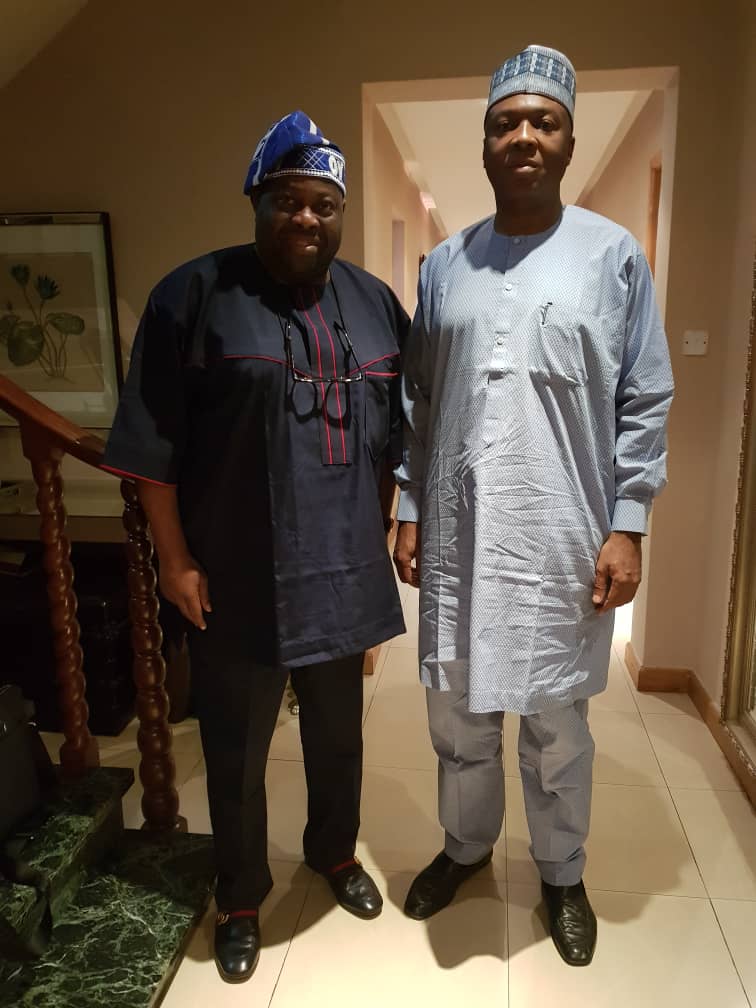By Dele Momodu
Fellow Nigerians, these are not the best of times for the Buhari strategists. Certainly, it can’t be; not with the way they’ve obviously been goading President Muhammadu Buhari on and encouraging him to fight on all fronts, and losing grounds regularly, which a retired Major General of his calibre should know is not the best. They’ve spent the better part of over three years digging holes, and setting traps, for real and imaginary enemies, setting villages ablaze in order to catch rats. Such shame and tragedy. If I were Buhari, I will sack many of my aides and advisers who have been misleading me.
I had told the President in 2015 how I appointed myself a Special Adviser to President Goodluck Jonathan for five years, free of charge, but no one listened to me. I even gave Baba a special compilation of my weekly sermons to the PDP government and I left the Presidential villa feeling cool and reassured that at last we have a listening government.
Before I could say Jack Robinson, things began to fall apart. The most disturbing was the war of attrition between the executive arm and the legislature. The President of the Senate, Dr Abubakar Bukola Saraki was subjected to all manner of attacks and humiliation. He was tried and convicted on the pages of newspapers. A few of us who cautioned against this political harassment were called names because of our faith in the rule of Law. The warriors played to mob mentality and gullibility, and apparently enjoyed the way they knocked heads and scandalised those who were their bosom friends, once upon a time. I knew life is turn by turn. Never abuse God-given power because you hate someone because no one knows tomorrow.
I’m very happy that I stood by the principle that an accused person is innocent until proven guilty. I thank God for the gift of access, the greatest tool of a journalist and reporter. When the Saraki saga started, I booked an appointment to meet the Senate President at home in Abuja. And he was gracious to oblige me.
He welcomed me into his home office where he took me into confidence about the myriad of chrges against him. I bombarded him with a barrage of questions including the Societe Generale conundrum which has dogged him everywhere. He expressed visible remorse and explained all efforts he has made to pacify all those affected and aggrieved. He demonstrated that no one was above mistakes but that he never set out to hurt any soul deliberately. Until you listen to the other side, it is always easy and convenient to jump to conclusions.
He assured me that his case was highly political and it would never fly. As a matter of fact, on the surface, anyone who ever took time to study the case file on Saraki would have pronounced him instantly guity. But the Senate President was extremely confident that his was an audacious witch-hunt.
During my session with him, he brought out his statement of defence which was well articulated and I knew prosecution was going to be ridiculed whenever the case comes up but I kept mute about the privileged information. If you folowed the case, you would remember how prosecution witnesses were taken to the cleaners, as they spoke incoherently, and torn to shreds by defence counsels. The case was a complete waste of resources and judicial process. The time the executive should have spent working in synergy with the National Assembly for the betterment of our dear beloved country was wasted on jejune and needless litigations.
Yesterday, the ghost of Code of Conduct Tribunal was finally laid to rest at the Supreme Court of Nigeria. What a great relief and de javu? Saraki was declared innocent. Yes, by all the five learned Justices. When the news came, I thought it was a joke but it was indeed true.
Patience is truly a virtue. While it lasted, Dr Saraki bore his pain and unnecessary humiliation with uncommon equanimity. The idea of the case was ostensibly to apply pressure and force him to resign since he appeared too strong to be easily removed from office. Such act of man’s inhumanity to man should be discouraged, no matter who’s affected. It is Saraki today, Dasuki tomorrow and someone else day after.
I salute the courage of our judges in the face of stupendous intimidation. No man is perfect but our judges should continue to seek for perfection. They shoud be above board and stand always on the side of the oppressed, whether rich or poor.
Please permit me to tell the President for the umpteenth time that the price of peace is far cheaper than the cost of war. Those advising him to keep fighting are what the Yoruba call “arijenidimodaru” (those who profit from confusion). It is far better to spend the next few months in tranquility than in strife.
It was obvious APC was going to suffer the same fate as PDP did under President Jonathan. A house divided against itself can hardly stand. I know the next strategy would be to bully opposition but that would be very unfortunate. The reason I respect President Jonathan is the way he did not see power as the beginning and the end. He had the power to haunt and hound Major General Buhari but he resisted the temptation.
Buhari has the opportunity to either consolidate our democracy or kill it. Whichever option he takes is up to him but one thing is certain, power must come to a terminal end some day and, usually, sooner than later.
I hope my dear Brother Comrade Adams Oshiomhole will succeed in restoring some sense of decorum to his faction of APC, if it is not too late. I was happy to see him visit the Senate President days ago. That should be the spirit.
Congratulations to Dr Abubakar Bukola Saraki. Thanks for your calmness in the face of unfortunate acts of intimidation. Please, leave your life to God and forgive whoever has wronged and punished you, even if you can’t ever forget. It is obvious that you have ten lives.
I LOST A FATHER 20 YEARS AGO
I lost my biological father 45 years ago but God provided another father for me from 1988, in Chief Moshood Abiola, who adopted me without ever knowing any member of my family intimately.
For the years I knew Chief Abiola, I was treated with tender loving care. On July 7, 1998, the sad news came that Daddy as we fondly called was dead, after a sudden heart attack. My life stood still, momentarily, but I still thanked God for the wonderful life Chief Abiola lived, touching lives everywhere at home and beyond.
As a token of my own celebration of Chief Abiola, I’m lauching three books next Wednesday, July 11, 2018 at the Nigeria Institute of International Affairs, with Pastor Tunde Bakare as keynote Speaker. Daddy, continue to rest in peace, Sir.
And here’s wishing my second son, Enitanyole, happy birthday today. I love you more than you can ever imagine. Stay responsible.

 News6 years ago
News6 years ago
 Featured6 years ago
Featured6 years ago
 Boss Picks6 years ago
Boss Picks6 years ago
 Headline6 years ago
Headline6 years ago
 Headline5 years ago
Headline5 years ago
 Headline6 years ago
Headline6 years ago
 Headline6 years ago
Headline6 years ago
 Headline6 years ago
Headline6 years ago














